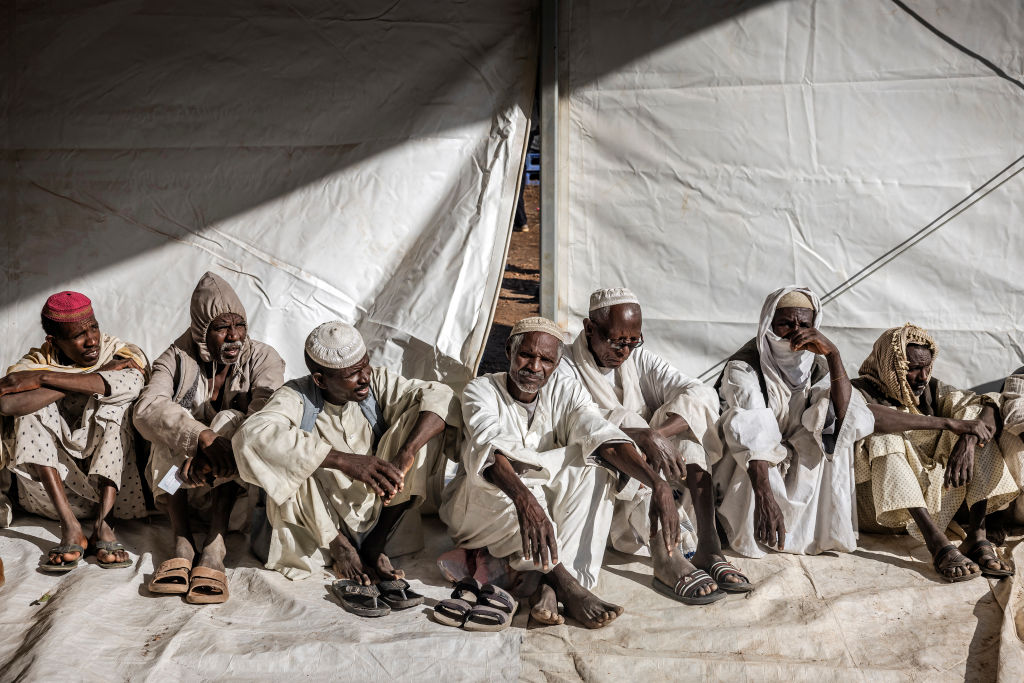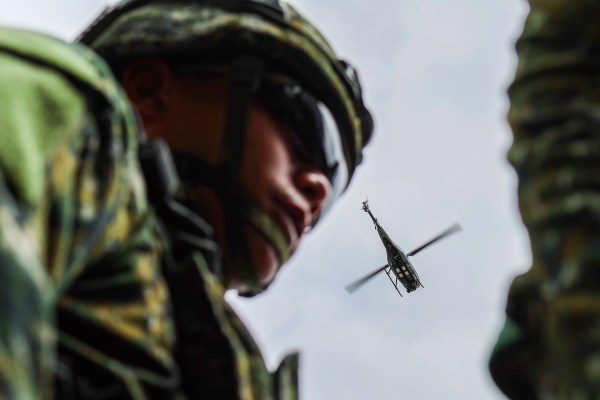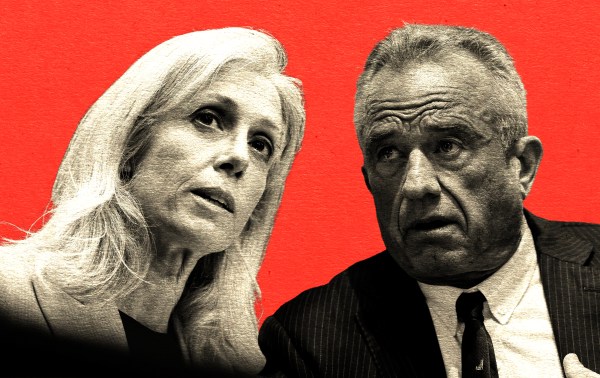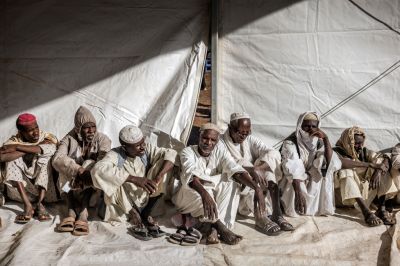Happy Wednesday! We’ll be honest: We did not expect to spend as much time as we did yesterday digging into the bylaws of Major League Eating’s (MLE) annual Nathan’s Famous Hot Dog Eating Contest.
Joey Chestnut, the contest’s 16-time champ, will reportedly not compete this Fourth of July after he inked a deal with rival, plant-based meat brand, Impossible Foods, in violation of “basic hot dog exclusivity provisions” of his relationship with Nathan’s. “It seems Joey and his managers have prioritized a new partnership with a different hot dog brand over our long-time relationship,” MLE said in a statement.
Impossible Foods, meanwhile, issued a statement of its own: “It’s OK to experiment with a new dog. Meat eaters shouldn’t have to be exclusive to just one wiener.”
Quick Hits: Today’s Top Stories
- A jury on Tuesday found Hunter Biden guilty on all three federal felony gun charges related to his purchase and possession of a gun while addicted to cocaine. The jury deliberated for just under three hours before returning a verdict, which also found the younger Biden guilty of lying on a federal form about his drug usage. President Joe Biden said Tuesday following the verdict that he would accept the outcome of the trial, and has previously said he would not pardon his son in the case of a guilty verdict. Hunter Biden has vowed to appeal the conviction, and the judge overseeing the case did not schedule a date for the sentencing.
- South Korea’s Joint Chiefs of Staff said Tuesday that South Korean soldiers had fired warning shots this week at North Korean troops who briefly crossed into the Demilitarized Zone between the two countries. The northern soldiers immediately returned to their side of the border, and a spokesman for the Joint Chiefs suggested the incursion seemed unintentional. The last few weeks have seen North Korea float manure- and trash-filled balloons over the border and South Korea retaliate by playing South Korean pop music and propaganda materials over a loudspeaker into the North.
- Four instructors from Cornell College in Iowa were stabbed in a public park in Jilin City in northeast China on Monday, local authorities and representatives of the college said. The four, who are expected to recover from their injuries, were attacked by a suspect in his 50s. The man—who has been arrested—also stabbed a bystander who tried to intervene. The motive of the attack was unclear, but the Chinese Foreign Ministry described it as an “isolated incident.” No Cornell students were taking part in the program with a local Chinese university at the time of the stabbing.
- Malawi’s president, Lazarus Chakwera, announced on Tuesday that the country’s Vice President Saulos Chilima and nine others died in a plane crash in an uninhabited forested region of the east African nation on Monday. An initial investigation indicated that the plane crashed as a result of bad weather. Chilima was expected to run for president in 2025.
- The U.S. Department of Homeland Security on Tuesday banned imports from three Chinese companies over violations of the Uyghur Forced Labor Prevention Act, which aims to keep goods out of U.S. supply chains that were produced with forced labor in China’s Xinjiang province. The three companies—a seafood processor, aluminum manufacturer, and shoe producer—join more than 60 companies on the forced labor blacklist.
- Manhattan District Attorney Alvin Bragg—who successfully prosecuted former President Donald Trump for falsifying business records to cover up an affair with a porn star—said Tuesday he intends to comply with a request from the Republican-controlled House Judiciary Committee to testify before Congress on July 12, just one day after Trump’s sentencing hearing. Rep. Jim Jordan of Ohio, chairman of the House Judiciary Committee, called on Bragg and prosecutor Michael Colangelo—who worked as a lawyer for the Justice Department before joining the D.A.’s office—to testify following Trump’s conviction late last month, saying the proceedings were a “kangaroo court.”
- GOP Rep. Nancy Mace of South Carolina won her Republican primary on Tuesday, fending off challenger Catherine Templeton, backed by former House Speaker Kevin McCarthy—whom Mace helped to oust from the leadership position in October. Meanwhile, in Nevada, a Trump-backed Republican Senate candidate, Army veteran Sam Brown, easily clinched the GOP nomination to set up a tight general election contest with Democratic Sen. Jacky Rosen in November.
‘We’re Talking About Almost a Failed Region’

Covering slow-rolling conflicts can be challenging, as crises slide from bad, to terrible, to unthinkable. Foreign correspondents file invaluable dispatches from war-torn regions that have become black boxes to the outside world, shedding light on atrocities and humanitarian disasters, but international attention and action can prove fleeting even as conditions worsen on the ground. Such has been the case with Sudan.
Fourteen months into the country’s civil war, the Rapid Support Forces (RSF)—a paramilitary group allied with mostly Arab militias—and the Sudanese Armed Forces (SAF) are wreaking havoc on the country in a seemingly intractable conflict.
But with international focus trained on the wars in Gaza and Ukraine, comparatively little attention has been paid to what has become the largest displacement and food crisis in the world. Neglect of the conflict has driven international media to continually label Sudan the “forgotten” crisis.
There’s no shortage of suffering. There have been credible reports of war crimes from both sides, rape as a weapon of war, and ethnic cleansing. Some of the same people who escaped genocide in Darfur, a region of Western Sudan, in 2003 are once again fleeing for their lives. Now, a huge swath of the country faces famine and starvation—some families have reportedly resorted to eating balls of wet dirt to stave off hunger.
More than 10 million people are ...
As a non-paying reader, you are receiving a truncated version of The Morning Dispatch. Our full 1,792-word story on the ongoing Civil War in Sudan is available in the members-only version of TMD.
Worth Your Time
- Government officials are starting to sound like they did in the weeks, months, and years before the 9/11 attacks, Graham Allison and Michael J. Morell warned in Foreign Affairs. “The wax and wane of terrorism warnings over the years has generally corresponded with the level of actual risk,” they wrote. “Given the stakes, complacency is a greater risk than alarmism. Combined, the stated intentions of terrorist groups, the growing capabilities they have demonstrated in recent successful and failed attacks around the world, and the fact that several serious plots in the United States have been foiled point to an uncomfortable but unavoidable conclusion. Put simply, the United States faces a serious threat of a terrorist attack in the months ahead. … For the past two decades, under both Republican and Democratic administrations, the efforts of thousands of Americans in the military and intelligence communities have spared the country a second 9/11—or worse. This is an extraordinary achievement, but the work is not done. A terrorist attack is a preventable catastrophe. As the threat increases, policymakers must rise to the challenge to protect the U.S. homeland.”
- Are Americans lonely because we don’t have dining rooms anymore? That could be one piece of the puzzle, M. Nolan Gray wrote in The Atlantic. “In many new apartments, even a space to put a table and chairs is absent,” he wrote. “Eating is relegated to couches and bedrooms, and hosting a meal has become virtually impossible. This isn’t simply a response to consumer preferences. The housing crisis—and the arbitrary regulations that fuel it—is killing off places to eat whether we like it or not, designing loneliness into American floor plans. … As households and dining spaces have contracted, the number of people eating alone has grown. According to a 2015 report by the Food Marketing Institute, nearly half the time we spend eating is spent in isolation, a central factor in America’s loneliness epidemic and a correlate to a range of physical- and mental-health problems. Do we want to live this way—or do we have to, thanks to America’s housing supply? ‘It’s a chicken-and-an-egg problem,’ Bobby Fijan, a real-estate developer and floor-plan expert, said. How many more dinners would be shared if we had the space to host guests?”
Presented Without Comment
New York Times: Chiquita [Banana Company] Held Liable for Deaths During Colombian Civil War
Also Presented Without Comment
CNN: Biden to Speak on Gun Safety Shortly After His Son is Found Guilty on Firearms Charges
Also Also Presented Without Comment
The Hill: Wild Hogs Threatening Florida, Spreading Across U.S.
In the Zeitgeist
We highly recommend having coworkers with good taste in music. Alex turned us on to this new album by Gill Landry, Cinnamon Canyon Blues.
Toeing the Company Line
- In the newsletters: Sarah and Mike covered Hunter Biden’s conviction on felony gun charges and Nick wondered whether right-wingers’ persistent attacks on Joe Biden’s age are lowering expectations too far ahead of the debate—or just plain effective.
- On the podcasts: Jonah is joined on The Remnant by Yuval Levin, his boss at the American Enterprise Institute, to discuss Yuval’s new book, American Covenant: How the Constitution Unified Our Nation—And Could Again.
- On the site: Jonah criticizes Washington’s immigration indecision and Kevin argues that fracking helped the U.S. economy weather the post-COVID era.









Please note that we at The Dispatch hold ourselves, our work, and our commenters to a higher standard than other places on the internet. We welcome comments that foster genuine debate or discussion—including comments critical of us or our work—but responses that include ad hominem attacks on fellow Dispatch members or are intended to stoke fear and anger may be moderated.
With your membership, you only have the ability to comment on The Morning Dispatch articles. Consider upgrading to join the conversation everywhere.